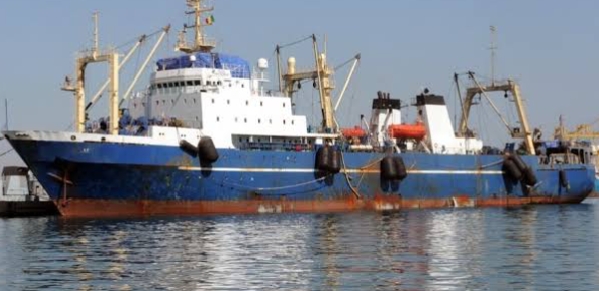Senegal Officially Licenses 151 Fishing Vessels For Coastline Operations
The new Senegalese government has initiated a raft of measures to protect its marine resources by issuing fishing permit to a total of 151 vessels, including 132 national and 19 foreign vessels.
This was part of measures to curb incessant Illegal, Unregulated and Unreported(IUU) fishing along its coastline.
This started last week with the publication of the list of vessels authorized to fish in Senegal’s national waters.
The Minister of Fisheries Dr. Fatou Diouf, stated that only the above mentioned figures are licensed to fish in the country’s territorial waters.
The ministry added that the publication of the list is in line with the principle of transparency, the new government approach in management of public resources.
For years, the Senegalese government has come under immense scrutiny for corrupt practices in management of the national fisheries.
A 2022 report by the Senegalese National Office to Fight Fraud and Corruption (OFNAC), noted grievous infractions of the country’s Fisheries Code by the Ministry of Fisheries at the time. The report highlighted irregularities in issuance of industrial fishing licenses, to the detriment of artisanal fishing and national food security. To mitigate against these nebulous practices, stakeholders have been demanding an audit and publication of the list of fishing vessels authorized in Senegal.
“Greenpeace Africa welcomes the decision of the new Senegalese government to publish the list of vessels authorized to fish in the country’s waters. We strongly encourage Senegal to continue on this path and to audit Senegalese flag and join Fisheries Transparency Initiative (FiTI), a global initiative promoting Transparency and public disclosure of information on fisheries governance,” commented environmental campaign group Greenpeace Africa.
As a follow-up to the disclosure of the list of fishing vessels, Senegalese Council of Ministers, chaired by the president Bassirou Diomaye Diakhar Faye, has called for strengthening the country’s Maritime Fishing Code in order to combat illegal fishing activities.
In addition, President Faye called for an inventory and evaluation of state intervention, subsidies and funding in the fisheries sector. He also ordered the government to prioritize renewing and securing the fleet of the artisanal fisherfolk.
Senegal is the second largest fish producer in West Africa after Nigeria, but its poor governance of fisheries has allowed pilferage by dodgy industrial fishing fleets. A recent report by the London-based global affairs think tank ODI assessed economic impact of IUU fishing in five vulnerable countries: Ecuador, Ghana, Peru, the Philippines and Senegal. The report found that IUU fishing could be costing the five countries 0.26 percent of their combined GDP, leaving over 30,000 people jobless and pushing another 140,000 people deeper into poverty.




Comments are closed.